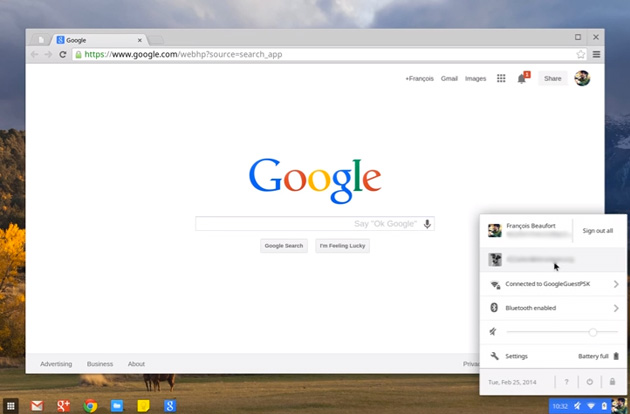WHAT'S NEW?
Loading...
Google Is Linux's Only Hope
Linux is an operating system just like Windows or Apple's OS X that runs on Macs. It's the underlying software that runs any computer. Linux is an open-source OS that allows anyone to modify and distribute it. This has resulted in tons of "distros" or distributions of different types of Linux. Some of the most popular ones include Ubuntu, Elementary OS, Debian, Arch Linux, Fedora, and more. While all these distros use Linux as a base, they are largely different in terms of their capabilities, interface, and basically everything about them. This is a major problem in the world of Linux that prevents it from becoming as big as it can be.
Not to say there aren't big companies that use Linux. Android is based off of Linux and is currently the most popular mobile OS in the world. Steam, Valve's desktop gaming platform, has launched a distro of Linux called Steam OS centered around playing games. These are successful uses of Linux because the creators of them were already big before entering the world of Linux. If you're a new player trying to get a foot in the door, it's going to be very difficult for your distro to even get a glance when competing against all the other distros out there.
I'm going to compare Linux to Android, because even though Android is based off of Linux it has basically taken a name of its own. Android is based off of AOSP, or Android Open Source Project. This is the core of Android and, just like Linux, anyone can modify and distribute it as they please. The reason most versions of Android you see are so similar is because Google's apps are not free to use. The Google Play Store, Maps, Google Now, and basically any other Google app are not included in AOSP. People must get their custom version of Android approved by Google in order to use their apps. They don't have to do this, of course, but nobody's going to buy an Android phone that doesn't have the Google Play Store. My point is, Linux does not have a nexus like this. (See what I did there?) All the Linux distros are wildly different and not very consumer focused because they don't have a central point to develop and stem from.
In order for Linux to gain footing in desktop OS statistics, which are currently at just over 1% by the way, they're going to need an already established company to come in and create an open source desktop OS like Android. Google has already made Chrome OS, but that isn't good enough. Google has confirmed to be working on combining Chrome OS and Android into a central desktop OS, which frankly, can't come soon enough. A desktop version of Android that behaves like a desktop OS should would expand the world of Linux and, frankly, change the desktop environment completely.
One of the major things that prevents people from using Linux is the lack of ability to use Windows or OS X applications. This is a major setback. This means no Photoshop, no Microsoft Office, and very little games. Sure, you can emulate some of these in Wine, but the result is a much worse version than the original and it only works half the time. For Linux to gain application developers, they're going to need a bigger market share. If Google can bring Android's already lush market to Linux, this would increase the adoption rate and hopefully get developers to make applications for Linux. This is assuming that Google wouldn't close off the OS completely, just like how you have the ability to install Android apps outside of the Google Play Store.
Really, Google is Linux's only hope. Without their intervention I really don't see Linux expanding much more than it has. Linux startups have been proven to not work out well, probably due to lack of applications. Google has the resources, the framework, the apps, and the popularity to make Linux prosper.
Sources: Tech Republic, Net Market Share
Image source: Engadget


0 comments:
Post a Comment